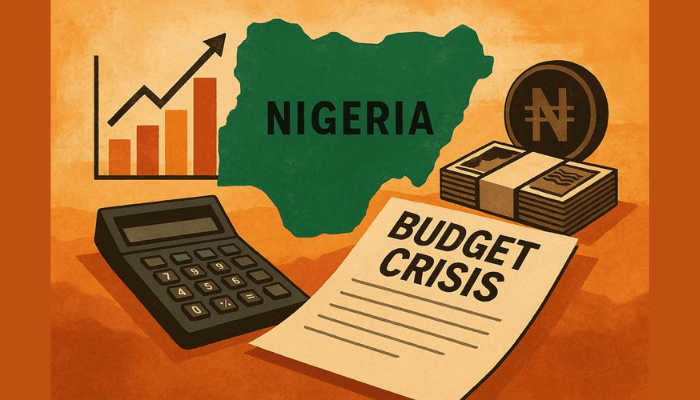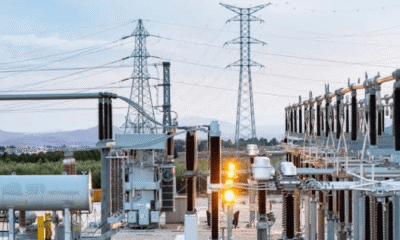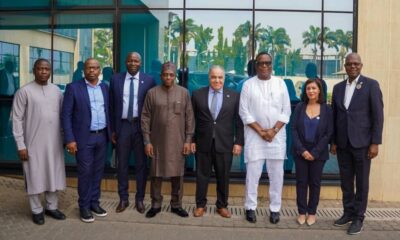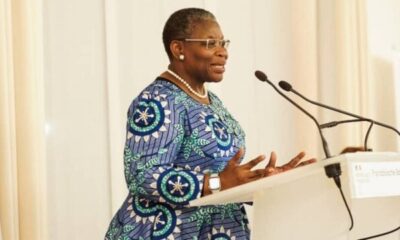News
Nigeria faces fiscal chaos as Tinubu breaks budget cycle

…As questions asked over 2024-2026 budgets
Nigeria’s budget system, once presented by policymakers as the anchor of macroeconomic stability, is now struggling under the weight of delays, contradictory signals and incomplete information.
The country is heading into 2026 without a proposed federal budget, creating a level of fiscal uncertainty that recalls the turbulent transition years of the late 1970s, when the shift from military to civilian rule disrupted federal planning.
Overlapping budgets and missing reports raise red flags
The warning signs have accumulated throughout the year. The 2023 supplementary budget, extended into 2024, remains active. The 2024 capital budget was first extended to June 2025 and then again to December 2025, creating overlapping fiscal cycles that blur the distinction between one year and the next.
Nigeria’s transparency framework is weakening at the same time. The 2025 Budget Implementation Reports, required under the Fiscal Responsibility Act, have not been published.
“Timely and consistent publication of budget execution reports is one of the most basic tests of fiscal accountability,” said Faruq Quadri, chief economist at the SPEC-Matrix Consulting (SMC), Abuja. “Once transparency begins to slip, execution quality usually follows.”
Swollen 2025 budget with limited visible impact
The strain became more apparent when the 2025 Appropriation Bill arrived almost three months behind schedule. The parliament subsequently passed the bill, which stood at N47.9 trillion. Other amendments raised it to N54.99 trillion, according to the Budget Office’s summary of June 2025.
Despite the larger envelope, there are still invisible improvements in capital projects. Data from the Budget Office shows that by September 2025, less than 30 percent of the capital component had been released by ministries, departments and agencies (NDAs). Hence nine months after passage, the capital segment remained largely unexecuted.
Reforms now under pressure
Nigeria has experienced breakdowns in fiscal discipline before. During the mid-1980s, delays and widespread off-budget spending signalled a balance-of-payments crisis that culminated in the Structural Adjustment Programme (SAP) of 1986.
In the early 2000s, the introduction of the Fiscal Responsibility Act (FRA) and the Medium-Term Expenditure Framework (MTEF) was intended to prevent a return to that disorder. The system was designed to enforce discipline by forcing future budgets to align with multiyear planning.
That architecture is now under visible strain. The 2026 to 2029 MTEF has not been prepared or submitted. Without it, federal and state governments are planning in the dark, and medium-term debt assumptions lack a guiding framework.
Research from Abuja based think tank CSEA has previously shown that delays in budget approval and release send “negative signals to foreign investors” and can divert capital to other countries. The current uncertainty risks reviving exactly that problem.
Confusing debt signals unsettle markets
The confusion is compounded by mixed messaging on debt. One week, the government secures fresh external borrowing to cover deficits. A few weeks later, officials celebrate progress on sustainability.
Nigeria’s total public debt stood at 121.67 trillion naira in the first quarter of 2024 and climbed to about 149.39 trillion naira by the first quarter of 2025, according to data from the Debt Management Office and independent summaries of its releases. That represents an increase of almost 23 percent in twelve months. Nigeria’s total public debt stood at N152.398 trillion as of June 2025
The International Monetary Fund (IMF), in its recent engagements with Nigeria led by mission chief Jesmin Rahman, has repeatedly stressed the need for higher domestic revenue and stronger fiscal transparency to reduce sustainability risks. When debt is rising quickly and communication is inconsistent, investors struggle to read the government’s true strategy.
Coordination failures widen the cracks
The growing disconnect between the executive and the legislature has become a major problem. Parliamentary committees say budget documents now arrive late and often contain incomplete data.
Ministries face similar issues. They report slow approvals and constant amendments, creating a process that is neither predictable nor transparent.
These concerns were reinforced by Seun Onigbinde, co-founder of BudgIT, during an interview on Channels Television’s Politics Today. He pointed out that the annual budgets contain serious fiscal gaps and criticised the government for abandoning the January-to-December budget cycle, which was meant to create order and predictability.
His comments reflect a wider concern shared by many analysts: Nigeria’s budget process is no longer guided by a clear timetable, and the repeated delays are deepening uncertainty across institutions.
Little improvement in people’s lives despite record budgets
For many Nigerians, the central issue is not the procedural lapses but whether the rising budgets have improved living conditions. Inflation has fallen from 24.48 percent in January 2025 to 16.05 percent in October 2025, according to the National Bureau of Statistics (NBS). Food inflation has also decelerated from 26.08 percent to 13.12 percent over the same period.
Yet these improvements are not translating into relief for many households. Prices remain elevated compared with 2022 levels. Real wages have not recovered. Insecurity continues to disrupt farming and trade routes in the North West and parts of the Middle Belt.
The World Bank’s Food Security Update estimates that more than 70 million Nigerians faced moderate or severe food insecurity in 2024 and 2025, driven by conflict, inflation and weak income growth.
Infrastructure performance offers little optimism. The national grid output still sits below 4,500 megawatts, roughly the same level recorded in 2015. Nigeria’s road network condition score, based on Federal Ministry of Works assessments, showed only marginal improvement between 2021 and 2024 despite rising capital budget allocations.
The cost of mistrust is rising
The broader consequence is a deepening trust deficit. Nigeria’s fiscal system increasingly resembles a revolving door of extensions, revisions and incomplete execution. Investors say these inconsistencies complicate decision-making.
Households see little connection between ballooning budget sizes and improvements in their daily lives. Civil society organisations warn that opacity increases the risk of waste and undermines accountability.
Nigeria approaches a fiscal crossroads
Some analysts believe Nigeria is entering a new phase of fiscal fragility that will require difficult decisions. A credible 2026 budget, submitted on time and based on realistic assumptions, is seen as the first step. A functioning medium-term framework is the second. A coherent and transparent debt strategy is the third.
Without these corrections, Nigeria risks slipping into a pattern in which budgets continue to grow but deliver fewer results.
The federal budget is the country’s most important policy instrument. When it becomes unpredictable, the entire economy feels the impact. Nigeria’s challenge today is not a lack of ambition but a widening gap between intention and implementation, analysts say.
Until that gap narrows, Nigerians will continue to ask why the numbers keep rising while the outcomes remain unchanged, they add. (BusinessDay)
-

 Business22 hours ago
Business22 hours agoPower outages persist as 58% of hydro projects stay frozen
-

 Business22 hours ago
Business22 hours agoNCDMB Pledges Enduring Support for APPO, Africa Energy Bank
-

 Politics20 hours ago
Politics20 hours agoDon’t play with fire… adopt clause on real-time transmission of election results – Ezekwesili tells Senate
-

 World News16 hours ago
World News16 hours agoPresident Trump Shares Racist Video of Michelle, Barack Obama as Apes










